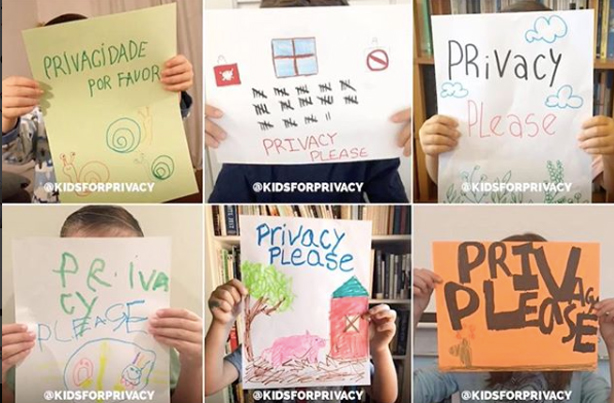This new initiative wants you to think twice before posting photos of your child online
A new campaign by The Child Rescue Coalition is calling for all parents to act immediately to reclaim their children’s right to privacy online.


A new campaign by The Child Rescue Coalition is calling for all parents to act immediately to reclaim their children’s right to privacy online.
A sweet bath time snap, an innocent picture from a day at the beach, a candid capture of your kids playing in the paddling pool in the garden – in the age of social media and sharing, uploading personal photos to the internet is second nature for most. It’s a way of keeping in touch with friends and family from afar, and sharing sweet updates from our children’s lives with those too far away to see them on a regular basis.
However, new statistics show that most parents will post roughly 1,500 photos of their child online before their fifth birthday. So, with parents sharing more pictures with the public of their babies and young children than ever before, is it time that we start to think twice about sending snaps of our kids out into the world wide web?
Well, that’s what the Child Rescue Coalition thinks, a non-profit organisation that seeks to track, arrest and prosecute child predators. The Coalition recently launched the Kids For Privacy initiative, which aims to remind parents about the potential dangers of sharing photos of their children online – especially if they aren’t aware of what the privacy setting on their social media accounts are.
The Child Rescue Coalition has revealed that as many as 89% of parents haven't checked the privacy settings on their social media accounts in more than a year, leaving children in their online uploads vulnerable to predators.
http://www.youtube.com/watch?v=xpX5R63eu98
In an eye-opening video for their new campaign, the Child Rescue Coalition is calling for parents to reclaim their children’s privacy by using hashtags that frequently, and in most cases unintentionally, ‘overexpose kids on social media’. Instead of posting a photo of a child with the hashtag, the initiative asks people to instead upload a photo of a sign that reads ‘privacy please’ as a way to ‘reclaim children’s right to privacy online’, protect your child's online data, and raise awareness for the campaign.
GoodtoKnow Newsletter
Parenting advice, hot topics, best buys and family finance tips delivered straight to your inbox.
Far from asking parents to cease sharing photos of their children online altogether, The Coalition is rather seeking to advise parents to think carefully about what kind of photos of their kids they choose to post on social media – and to double check their security settings before they do. Knowing who is looking at your photos online and who has access to your pictures is vital when it comes to protecting your child’s privacy.
The Child Rescue Coalition suggests parents ask themselves these four questions before posting a photo of their child on social media:
- Why am I sharing this?
- Would I want someone else to share an image like this of me?
- Would I want this image of my child viewed and downloaded by paedophiles on the dark web?
- Is this something I want to be part of my child’s digital life?
To find out more about The Child Rescue Coalition or their Kids for Privacy hashtag takeover project, visit childrescuecoalition.org or search @kidsforprivacy on Instagram.

An internationally published digital journalist and editor, Rachael has worked for both news and lifestyle websites in the UK and abroad. Rachael's published work covers a broad spectrum of topics and she has written about everything from the future of sustainable travel, to the impact of the coronavirus pandemic on the world we live in, to the psychology of colour.